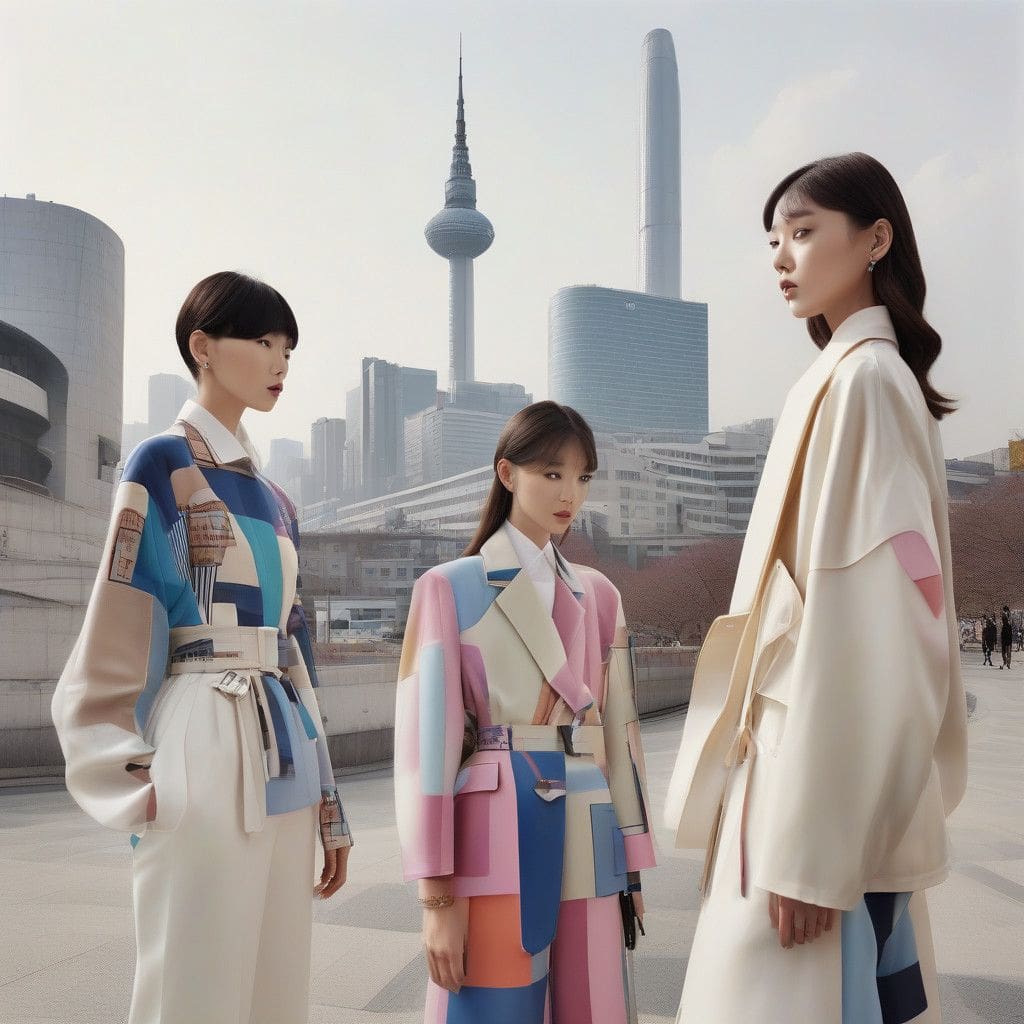Seoul Fashion Week, a pivotal event in the global fashion calendar, is adopting a renewed focus on B2B strategies under the guidance of its new director, Ko Kyoung-in. From September 3 to 7, 2024, the event showcased approximately 100 brands, blending trade shows and runway presentations, while asserting its commitment to building enduring partnerships with international buyers. This strategic redirection is essential for not only rejuvenating Seoul’s fashion ecosystem but also enhancing the global presence of South Korean fashion.
The recently held Seoul Fashion Week served as a platform for local brands like Ulkin, Ajobyajo, and Hannah Shin, which presented their collections to a diversified audience. Ko Kyoung-in emphasized the initiative to invite influential global buyers. This approach aims to expand trading opportunities beyond traditional markets, allowing South Korean brands to engage with a broader range of overseas partners. By realigning its focus away from consumer-oriented events and celebrity endorsements—though still beneficial in value—Seoul Fashion Week strives to cultivate its image as a serious global fashion business hub.
In practice, this means prioritizing B2B connections through tailored experiences for trade attendees. Ko noted, “This season we invited a greater number of influential global buyers…to diversify overseas trading partners and provide growth opportunities for our fashion brands.” Such invitations are integral to ensuring the long-term vitality and competitiveness of the South Korean fashion industry.
As the South Korean government has taken an active role in organizing this event since 2021, the commitment reflected by Ko and the Seoul Metropolitan Government highlights a push toward developing a more cohesive fashion ecosystem. This is not merely about showcasing designs; it’s about fostering an environment ripe for international collaboration and trade relationships.
Comparatively, other fashion weeks globally have been adjusting their strategies amidst evolving market dynamics. For example, during the recent Tokyo Fashion Week, the Tokyo Fashion Award recognized innovative talents within the industry, encouraging a parallel narrative of fostering growth and international recognition. Yet, unlike Tokyo, which has leaned heavily into celebrity-driven initiatives, Seoul is positioning itself distinctly in the arena by prioritizing business relationships.
This recalibration comes against a backdrop of a shifting luxury market, particularly in Asia, where demand is under scrutiny. For instance, Kering, owner of Gucci, has recently faced investor caution as luxury stocks were adversely affected by worries over demand—primarily from China. Companies like LVMH and Hermès have seen minor rebounds, but the landscape remains fraught. Meanwhile, the UAE’s Dubai Fashion Week launched a new buyer programme to extend its influence beyond the immediate region, highlighting a growing emphasis on international buyer engagement across major fashion hubs.
In the context of South Korea, it is evident that the government’s backing is crucial for both enhancing the stature of Seoul Fashion Week and supporting domestic brands in navigating global markets. The fashion sector runs on more than just runway shows; it thrives on the networks and connections established at these pivotal events.
As Ko Kyoung-in ushers in this new phase for Seoul Fashion Week, it will be vital to monitor how these initiatives evolve. Will brands capitalize on the B2B focus to achieve sustainable growth? What long-term partnerships will emerge?
In the fast-paced world of fashion, the ripple effects stemming from this strategic pivot could redefine not only how South Korea is perceived in international fashion circles but also inspire similar shifts in other markets grappling with economic uncertainties and changing consumer preferences.
The question remains: can Seoul Fashion Week become the blueprint for other fashion weeks seeking to fortify their global influence through solid business foundations? As we analyze the developments from this season’s event, it becomes clear that the future of fashion may lie in stronger business acumen blended seamlessly with creativity.












